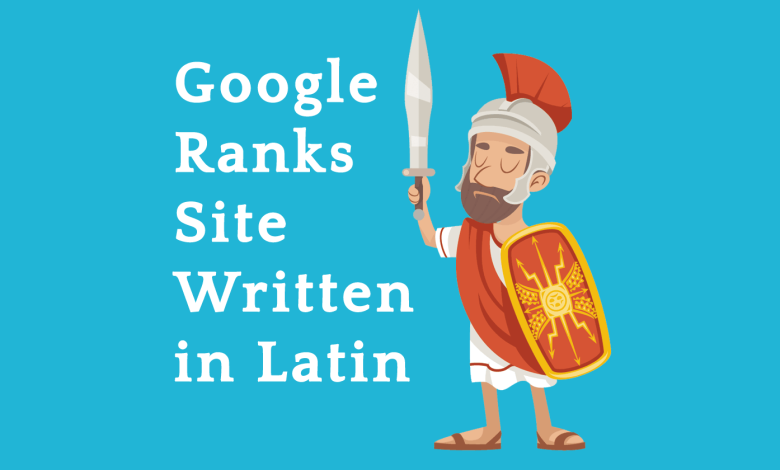
A Facebook SEO group organized a 30-day ranking challenge, where one of the top-ranked websites was written almost entirely in Latin. The results revealed the vulnerability of Google’s algorithm to aggressive SEO tactics.
Brute Force SEO
A common error in competitive research is assuming that the apparent tactics used by top-ranking sites are responsible for their success. Google might leverage those signals—but it might also rely on others. No one truly knows why a site ranks as it does; only Google does. The visible tactics aren’t necessarily the reasons for a site’s high ranking. This article doesn’t aim to scrutinize SEO tactics but to showcase how websites with certain characteristics can still bypass Google’s spam filters and take top spots in search results.
The SEO Challenge
The challenge was to rank a site for the search term "Rhinoplasty Plano." Rhinoplasty refers to a cosmetic surgery, and Plano is a city in Texas. The top-ranked site was RhinoplastyPlanoTexas.com, while Rhinoplastyplano.co secured second place.
Did Site Speed Help?
RhinoplastyPlanoTexas.com utilized a free WordPress theme called Clean Blogging, known for its minimalistic HTML-like code, achieving a speed score of 97.
Mediocre Content Metrics
The quality of content is often subjective. Using the Hemingway App to assess grammatical and technical metrics, the content scored poorly to mediocre. About 73% of sentences were hard to very hard to read, with excessive use of adverbs and passive voice. The readability was judged at a grade 13 level.
Did Links Help Site Rank?
It’s uncertain if links contributed to the ranking, though there seem to be numerous low-quality links pointing to the site. While the exact impact of these links isn’t clear, it seems they played a role.
Google Ranks a Latin Language Site
The second position was held by a site written almost entirely in Latin, Rhinoplastyplano.co, contradicting Google’s guidelines on authority and quality content.
Reviews Structured Data
Despite doubts about receiving genuine reviews, Google provided a review snippet for the site based on structured data. Google’s guidelines emphasize valid review markup rather than authenticity. The advice against publishing fake reviews must be clearly communicated in the right context to prevent misuse.
Maps and Citations
Another factor could have been local citation signals. Rhinoplastyplano.co incorporated a Google map and an address, along with various local listings. Anomalies like Yelp marking the business as closed, while Dex displayed it, present further questions. The structured data contained non-follow links.
Do Links in Structured Data Pass PageRank?
It’s believed that links in structured data don’t pass PageRank, but arguments exist for the contrary: structured data should mirror visible content, suggesting URLs there could be considered citations.
Is Google Broken?
There’s ongoing discussion about potential errors with Google’s new algorithm. The ranking of these sites challenges Google’s credibility in combating spam.
Images by Shutterstock and screenshots by Author, modified for clarity.


